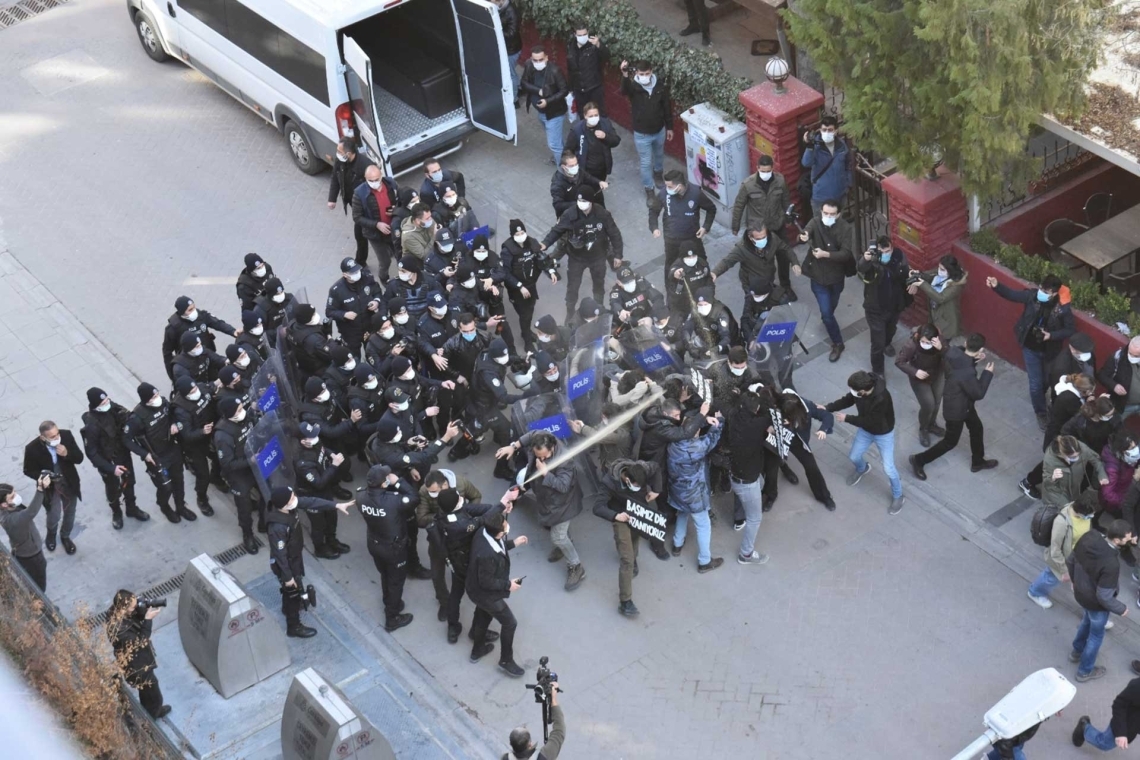Hayri Demir
Thirteen individuals, who were detained during a press statement protest in Ankara against President Erdoğan's appointment of Melih Bulu as the rector of Boğaziçi University, were acquitted of all charges.
The ninth hearing of the case, held at the Ankara 7th Criminal Court of First Instance, involved charges of "violating the Law on Meetings and Demonstrations" and "resisting to prevent officials from performing their duties." Some of the defendants and their lawyers were present.
The prosecutor's office sought to convict all 13 individuals for violating the Law on Meetings and Demonstrations and recommended acquittal for two individuals on the charge of resisting to prevent officials from performing their duties.
The defense argued against the prosecutor's opinion, asserting that the defendants were detained and assaulted before they could even participate in the press statement. Lawyer Ümran Hakverdi emphasized that the defendants' rights to freedom of expression, guaranteed by the Constitution, were violated, and called for their acquittal.
Murat Yılmaz, President of the Contemporary Lawyers Association (ÇHD) and one of the defense lawyers, argued that the legal elements of the charges against his clients were not present. He noted, "During and after the State of Emergency period, press statements in Ankara were arbitrarily prevented. If the police intervene when citizens exercise their constitutional rights, cases are filed; if not, they are not."
Lawyer Eren Gönen pointed out that his clients were detained without any prior warning from the police.
After hearing the defenses, the court ruled that the legal elements of the charges were not met and acquitted all the defendants.
**Background on the case**
The case stems from a protest in Ankara against President Erdoğan's controversial appointment of Melih Bulu, referred to as a "trustee rector," to Boğaziçi University. During the protest, which involved a press statement, 13 individuals were detained and later charged with violating the Law on Meetings and Demonstrations and resisting to prevent officials from performing their duties. The protest was part of a broader movement against what many viewed as an undemocratic appointment process for university leadership.



